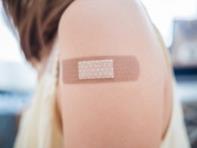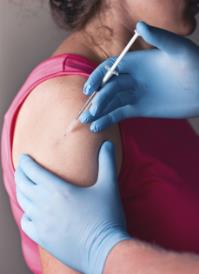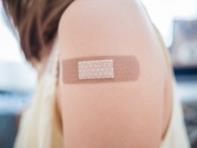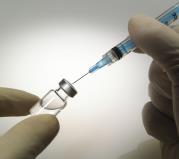|
|
Vaccine Injury
Thursday, July 25, 2019
 Each year, hundreds of people seek financial compensation for vaccine-related injuries and illnesses. Many more suffer injuries and illnesses that are never reported; and, as researchers continue learn more about the risks associated with different types of vaccinations, more types of injuries and illnesses are being recognized as vaccine-related. There are two primary ways that vaccine recipients can experience complications from their immunizations: (i) adverse reactions to vaccine ingredients, and (ii) errors during vaccine administration. 1. Adverse Reactions to Vaccine IngredientsIndividuals who experience adverse reactions to vaccine ingredients can face a variety of medical consequences. Read more . . .
Wednesday, June 5, 2019
 Each year, the Centers for Disease Control and Prevention (CDC) choose the specific strains to be targeted with the annual flu shot based upon an examination of thousands of influenza virus samples collected from patients worldwide. The selection process is not easy, and the challenges involved in choosing the most-effective formulation of the flu vaccine in any given year are largely to blame for the flu shot’s limited effectiveness in recent years. Now, however, scientists may have found a more-effective way to choose vaccines for future seasons. Using new “HINT” technology, scientists believe that it may now be possible to better identify the flu strains that most likely to infect people year to year. Read more . . .
Friday, February 1, 2019
 In 2018, we helped numerous individuals and families secure financial compensation for vaccine-related injuries and illnesses under the National Vaccine Injury Compensation Program (VICP). Combined, our clients received nearly $4.5 million in compensation. The following is an overview of the average award received by our clients, along with a breakdown of the most-common vaccines and vaccine-related injuries involved in VICP cases we successfully handled during the year.Read more . . . In 2018, we helped numerous individuals and families secure financial compensation for vaccine-related injuries and illnesses under the National Vaccine Injury Compensation Program (VICP). Combined, our clients received nearly $4.5 million in compensation. The following is an overview of the average award received by our clients, along with a breakdown of the most-common vaccines and vaccine-related injuries involved in VICP cases we successfully handled during the year.Read more . . .
Saturday, November 17, 2018
 “SIRVA,” or “shoulder injuries related to vaccine administration,” describes a set of injuries that are linked to errors during the vaccine injection process. These injuries are entirely unrelated to the ingredients of the vaccines being injected; instead, they result from improper administration such as inserting the needle too high on the arm or too deep into the shoulder. Read more . . .
Saturday, November 17, 2018
 For individuals diagnosed with vaccine-related injuries and illnesses, filing a claim under the National Vaccine Injury Compensation Program (VICP) can be an important step in the recovery process. The VICP provides financial compensation for claimants’ medical expenses, loss of income, and pain and suffering; and, for many individuals, these are costs that they simply cannot endure on their own. Read more . . .
Monday, August 20, 2018
 After advising against use of the nasal spray flu vaccine during the 2016-2017 and2017-2018 flu seasons due to lack of effectiveness, the Centers for Disease Control and Prevention (CDC) has re-approved use of the nasal spray vaccine for the 2018-2019 flu season. As stated on the CDC’s website: “For the 2018-2019 flu season, [the Advisory Committee on Immunization Practices (ACIP)] recommends annual influenza vaccination for everyone 6 months and older with any licensed, age-appropriate flu vaccine (IIV, RIV4, or LAIV4) with no preference expressed for any one vaccine over another. Read more . . .
Monday, August 20, 2018
 When seeking financial compensation for a vaccine-related injury or illness, you are bound to come across a number of initials and acronyms with which you are unfamiliar. Figuring out what these abbreviations stand for – and how they are relevant to your vaccine injury claim – is one of the first steps toward understanding your legal rights. Understanding Your Claim for Financial Compensation After a Vaccine Injury Centers for Disease Control and Prevention (CDC) The Centers for Disease Control and Prevention (CDC) is the federal agency responsible for establishing recommended vaccination schedules and providing the public with information about the risks associated with different types of immunizations. When looking for information about vaccine safety or the side effects associated with vaccine injuries, the CDC’s Vaccines & Immunizations site is a good place to start. Guillain-Barre Syndrome (GBS) Guillain-Barre Syndrome (GBS) is a rare but dangerous illness that has been linked to the flu shot and certain other immunizations. There are a number of acute and chronic variants of GBS, including Chronic Inflammatory Demyelinating Polyneuropathy (CIDP). Read more . . .
Monday, August 20, 2018
 Vaccines are not just for children. In addition to the annual flu shot, the Centers for Disease Control and Prevention (CDC) recommends a number of immunizations for adults. This includes “catch-up” immunizations for vaccines not received during childhood, vaccinations that are specifically recommended for adults, and vaccines for travel and other specific circumstances. Adults who are unsure whether then need to get vaccinated can take the CDC’s Adult Vaccine Quiz. Accurately completing the quiz will help you determine which vaccines you should discuss with your doctor. Other than whether you have received the chickenpox vaccine (to which you can answer, “Not sure”), you do not need any information about your medical or vaccination history in order to complete the quiz. Take the CDC’s Adult Vaccine Quiz. Additional Vaccine Resources for Adults As an adult, it is important to make informed decisions about getting vaccinated. This means understanding which vaccines you need, the benefits of those vaccines, and the risks associated with particular vaccine ingredients and the vaccine administration process. For more information, we encourage you to read: Read more . . .
Thursday, May 24, 2018
 While vaccine injuries are relatively rare overall, they are more common than most people realize. Each year, hundreds of individuals file claims with the National Vaccine Injury Compensation Program (VICP), and these claimants represent only a small fraction of the vaccine recipients who experience pain and other symptoms as a result of their vaccinations. From allergic reactions to spinal cord damage, vaccines have the potential to cause a variety of injuries, illnesses and other potentially-dangerous medical conditions. However, two types of conditions are particularly common: (i) shoulder injury related to vaccine administration (SIRVA), and (ii) Guillain-Barre Syndrome (GBS). About SIRVA and GBS1. Read more . . .
Thursday, May 24, 2018
 The measles, mumps and rubella (MMR) vaccine is among the most-effective vaccines in use today. The Centers for Disease Control and Prevention (CDC) estimate that cases of measles have dropped by 99 percent since the introduction of the MMR vaccine; and overall, the MMR vaccine is 97 percent effective for individuals who receive both of the recommended doses. Read more . . .
Monday, February 12, 2018
 For individuals who are experiencing pain after a vaccination, this pain is not something to be ignored. While a small amount of discomfort at the injection site is normal, severe pain that lasts more than a day or two could be a sign of a serious vaccine-related injury. From ongoing medical treatment and recovery to missed time from work, dealing with a vaccine-related injury can be expensive. Fortunately, there is a federal government program, known as the National Vaccine Injury Compensation Program (VICP) that provides financial relief for individuals diagnosed with vaccine-related injuries. The VICP also covers claimants’ legal fees separately from their awards of compensation, so hiring a vaccine lawyer can come at no financial cost to you. Read more . . .
← Back
|
|
|
|